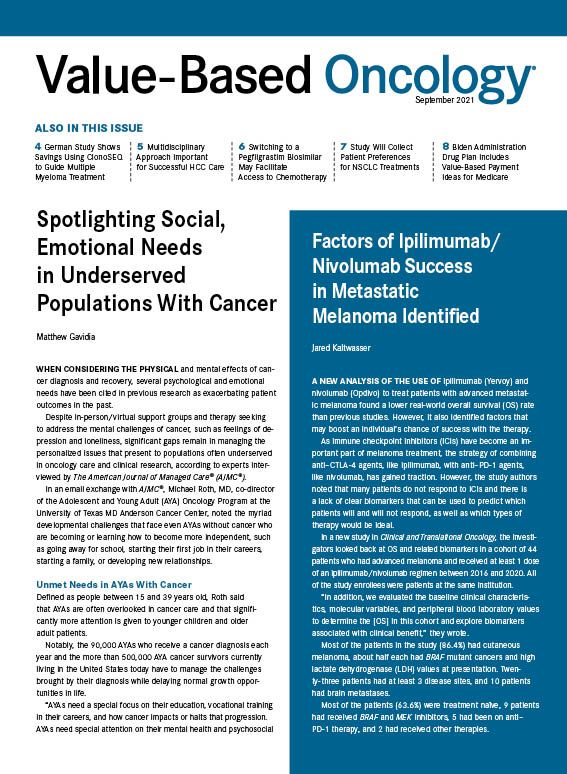- Center on Health Equity & Access
- Clinical
- Health Care Cost
- Health Care Delivery
- Insurance
- Policy
- Technology
- Value-Based Care
Biden Administration Drug Plan Includes Value-Based Payment Ideas for Medicare
The administration said it would make the results of its drug price negotiations with manufacturers, as well as its approach to value-based care models, open to a variety of payers.
The Biden administration Thursday released its plan to reduce prescription drug prices, which would include the use of models to test value-based payments in Medicare Part B.
The goal, said the administration, is “to foster innovation, increase competition, and improve the market environment, all in pursuit of reduced drug spending for consumers and throughout the health care system.”
The blueprint supports drug price negotiation with manufacturers, promotion of biosimilars and generics, and research that promotes the discovery of new therapies, while cracking down on patent thickets and pay-to-delay deals.
Negotiated drug prices in Medicare Parts B and D would be “available to commercial plans (including the Marketplace) and employers who want to participate.”
Giving the government power to negotiate drug prices is one that has strong public bipartisan support, the May 2021 KFF Health Tracking Poll has shown.
The plan also calls for:
- Medicare Part D reform, including a cap on catastrophic spending
- Legislation to slow price increases on existing drugs
- Legislation to encourage the use of biosimilar and generic drugs by speeding their entry into the market, thereby shortening the period of exclusivity, and policies in Medicare Part B to increase biosimilar uptake
- Investment in basic and translational biomedical research through a new agency within the National Institutes of Health called the Advanced Research Projects Agency for Health
The plan also calls on the CMS Innovation Center to explore various value-based models that could be open to other payers as well, including employer and Marketplace plans as well as state Medicaid programs. Payment could be tied to improved patient outcomes, reductions in health disparities, increased patient affordability, and lower overall costs.
It also suggested the use of shared-savings models, where Medicare Part B savings from using biosimilars, generics, or other high-value therapies are shared between prescribing providers and the government. Both beneficiaries with supplemental benefits and those without would benefit from either lower premiums or reduced out-of-pocket (OOP) costs, the plan said.
The plan also calls for bundled payment for treatment episodes that aim to reduce Medicare Part B drug spending through the use of biosimilars and generics, along with drug administration services, devices, and related assistance over a period of time. The models could include incentives for use of biosimilars, generic drugs, and "high-value single source product," the plan said.
The plan also proposes to collect data from payers and pharmacy benefit managers about prices, rebates, and OOP spending.

